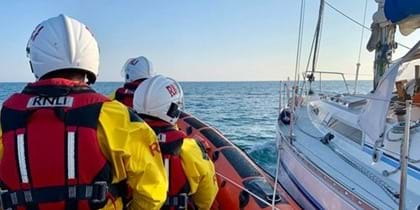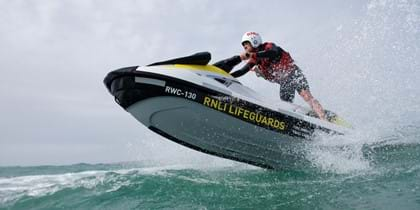Fight your instinct, not the water
Around 190 people lose their lives at the UK and Irish coasts each year, and over half never even planned to enter the water.
This year, Respect the Water will focus on simple skills that could save a life:
- If you find yourself unexpectedly in the water, float to increase your chances of survival.
- If you see someone else in trouble in the water, call 999 and ask for the Coastguard.
Cold water
Cold water shock is triggered in water temperatures lower than 15⁰C – the average temperature of UK and Irish waters is 12⁰C. So even in the Summer, the water temperature is cold enough to cause cold water shock, which can steal the air from your lungs and leave you helpless in seconds.
Rip currents and waves
Rip currents can travel up to the same speed as an Olympic swimmer (4.5mph) and can pull even the strongest swimmers out to sea. And unexpected waves can quickly knock people off their feet.
How you can help
Read our real-life stories and share our safety messages with family and friends.
Together we can reduce coastal drowning and save more lives at sea.
Helping you stay safe
At the beach
- Go to a lifeguarded beach and swim between the red and yellow flags.
- Before going into the sea, consider your ability and the conditions; swimming in the sea is very different to swimming in a pool.
- When you enter the water, take time to acclimatise to the temperature.
- Have someone watching you from the beach and make sure they are able to call for help.
Near open water
- When you are near open water, keep away from the edge, stick to designated paths and look out for safety signs.
- Keep clear of uneven, unstable or slippery ground.
- Avoid walking alone or at night, and always carry a means of calling for help.
- If you are exploring the coastline, always get local advice on the tide to make sure you don’t get cut off.
On the water
- Carry a means of calling for help in case you do end up in trouble.
- Wear an appropriate flotation device, such as a lifejacket or buoyancy aid – it could save your life.
- If you are going out alone, tell someone ashore your plans and what time you expect to be back.



